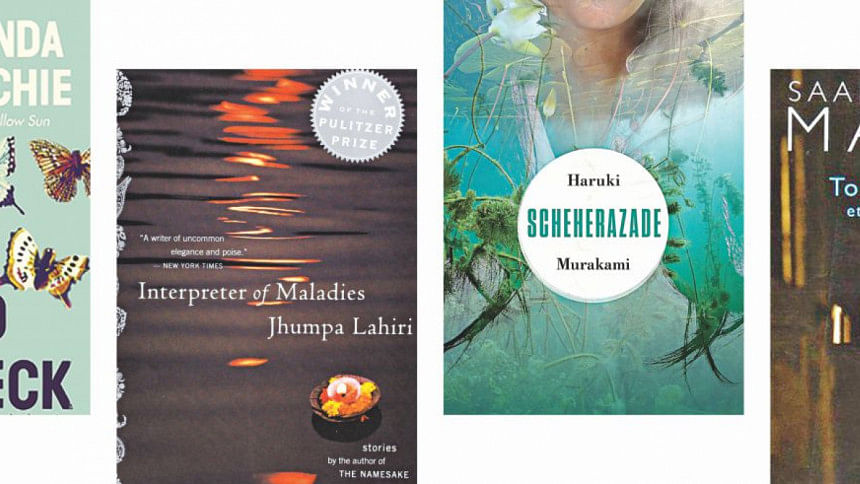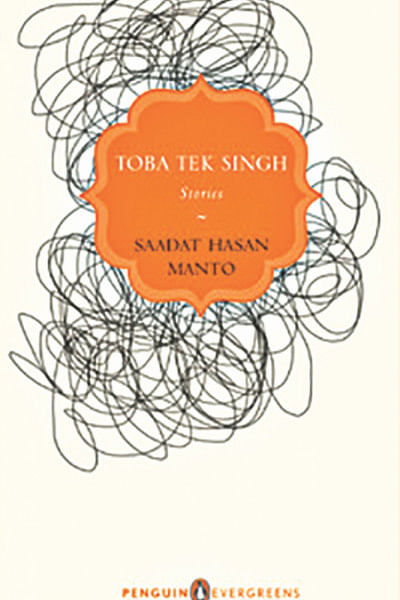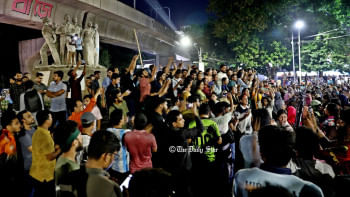The short story

Short stories are in. Or is the short story dead? Is it seeing a resurgence? The genre seems to be in need of constant justification despite established and novice writers alike constantly churning out short stories. A good short story is a microcosm of a novel, in which the author has fewer words at their disposal with which they have to introduce characters and set the scene, immerse the reader in these characters' experiences, and perhaps most difficult of all, bring about a satisfactory ending.The biggest perk of reading a short story is that you can finish one in the time it takes to have a cup of coffee or while waiting for the bus. Yet, the downside is that the impact lingers and you may not be ready to emerge out of the story yet or read another right away.
In December 2017, a short story titled "Cat Person" by Kristen Roupenian in The New Yorker went viral online, leading to multiple publishing deals. Alice Munro, winner of the 2013 Nobel Prize for Literature, was lauded for being "master of the contemporary short story". Franz Kafka, Anton Chekov, and O. Henry, among others, are considered masters of the genre.
Prominent magazines publishing short stories globally include The New Yorker and Granta in the UK. Kitaab, a Singapore-based publication, recently launched the anthology The Best Asian Short Stories which includes works by Bangladeshi writers Farah Ghuznavi and Moinul Ahsan Saber. These stories "by Asia's best known and well-respected contemporary authors and promising new voices, offer fresh insights into the experience of being Asian."
You can find short stories on blogs and websites, and published in magazines, newspapers, and journals. Another platform for short stories is competitions. A Bangladeshi writer, Imran Khan, was on the shortlist for the Commonwealth Short Story Prize for "Jyamitik Zadukor" (The Geometric Wizard), translated into English by Arunava Sinha, this year.

Following is a collection of short stories, all written by prominent authors addressing everything from social issues and current events to intimate look at relationships. A lot happens or nothing much at all, which is the inherent charm of short stories. A writer challenges their prose and writing style in trying to accommodate maximum punch for minimum words and the reader is usually left longing for more.
"Toba Tek Singh" by Saadat Hasan Manto
Manto tells a tale of Partition and its reverberations through the exchange of inmates between India and Pakistan post-Partition. Published in 1955, it is 100th on a list of BBC's most influential stories of all time, released earlier this year, chosen by writers around the world. Translated from Urdu, it is the story of one inmate in Lahore from the district of Toba Tek Singh and his determination to know of its whereabouts for over 15 years at the asylum. When the time for the exchange comes, will he ultimately belong to the country of his home of Toba Tek Singh?
"A Temporary Matter", Interpreter of Maladies by Jhumpa Lahiri
Interpreter of Maladies, Jhumpa Lahiri's debut collection of short stories, won her the Pulitzer for fiction in 2000. The opening story, "A Temporary Matter", is the moving portrait of an American Indian couple, Shoba and Shukumar, in Boston as they grieve for their stillborn baby set against the "temporary matter" of blackouts every night. Forced, for the first time in months, to communicate and encounter each other closely for nights on end, they tell each other secrets they hadn't shared before. The confessions build in gravity, ending on a shattering note with their marriage on the line.
"A Private Experience", The Thing Around Your Neck by Chimamanda Ngozi Adichie
Adichie writes of two women sheltering from riots in a deserted shop in Kano, Nigeria, for a day. They represent the factions fighting each other in the violence outside—one a Hausa Muslim and the other an Igbo Christian. Inside the store, the two women talk and share their experiences though the differences between them are stark—one poor, the other wealthy; one a privileged university student, the other an onion trader in the market; one visiting the area who has never experienced such a riot before, while the other is used to riots occurring regularly. But the common ground they share is their worry for their loved ones, separated from them in the chaos, who they may not find again.
"Scheherazade" by Haruki Murakami
Murakami writes about a man, Habara, restricted to his house and a woman who is his only link to the outside world. This woman, like Queen Scheherazade in "A Thousand and One Nights", tells Habara a story (leaving off at a climax in the story) after each time they have sex. He thus refers to her as Scheherazade. Murakami delves into some of her stories, their significance to Scheherazade's past, and her companionship's impact on Habara's limited world. The acclaimed Japanese author's story is part of a series Men Without Women (translated into English), a fascinating study in male loneliness.
"Roshogolla" by Syed Mujtaba Ali
By Bangladesh's very own short-story maestro and travel enthusiast is a fine piece of literature. In a brief few pages, author Syed Mujtaba Ali weaves together a story of travel, food, and a simple man finding and braving new territories. Roshogolla is essentially an expression of Mujtaba Ali in all his nuances. The story follows businessman, Jhanduda, who has just got down from a ship in the port of Venice in Italy. He is carrying a tin of vacuum-packed sweets, priced at ten taka. It is a story full of dialogues showcasing the exchange between the customs official and Jhanduda over the contents of the tin can.





Comments